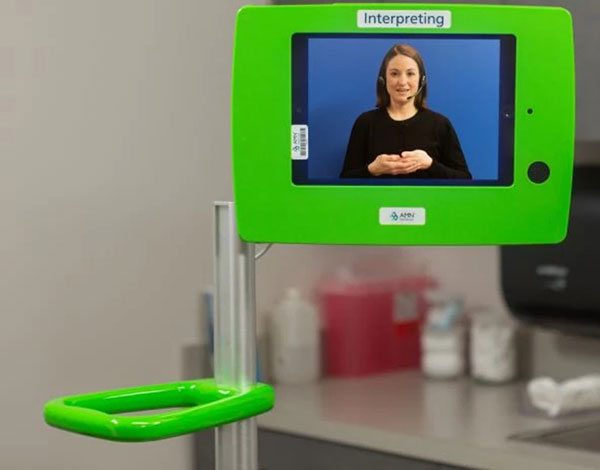Los Angeles Community Hospitals Using Interpretation Devices to Improve Safety for Non-English-Speaking Patients

Los Angeles Community Hospitals have deployed new interpretation devices in order to support patients with limited English proficiency, and to improve patient safety and experience.
Due to language barriers, limited English proficient (LEP), deaf and hard of hearing patients experience poorer quality care and outcomes, have less access to preventive services, and are less likely to adhere to healthcare plans.
The Video Remote Interpretation (VRI) devices from AMN Healthcare connect patients to live interpreters, providing 24-hour audio access in over 200 languages, and also 40 languages over video, with interpreters that are medically qualified and have an average connection time of 30 seconds.
A recent study from Massachusetts General Hospital and funded by the Agency for Healthcare Research and Quality showed adverse events occur more frequently and severely with LEP patients.
The study, which defined LEP as "speaks English less than 'very well,'" reported that LEP patients are more likely to experience medical errors due to communication problems compared to English-speaking patients, are more likely to suffer from physical harm when errors occur, and are more likely to experience medication errors and procedural consent errors compared to English-speaking patients.
Other areas of risk for LEP patients include medication reconciliation, patient discharge, emergency department visits, and operative care including use of non-qualified interpreters, use of family members or friends to translate, and provider use of basic language skills to get by.
Hospital staff are regularly using the devices for communication with LEP patients and families, reporting positive results and receiving positive feedback.
